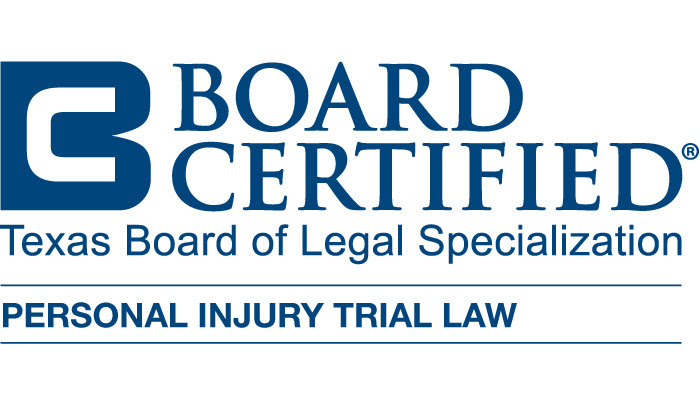Welcome to the Willumsen Law Firm blog, where we provide valuable insights and guidance on navigating the complexities of personal injury law. In this post, we’ll delve into a topic that requires experience and compassionate advocacy: bringing a brain injury claim. Suffering a brain injury can have life-altering consequences, impacting not only the injured individual but also their loved ones.
According to the Brain Injury Association of America, over 144,000 Texans suffer a traumatic brain injury (TBI) per year; over 5,700 are permanently disabled.
A brain injury claim involves seeking compensation for damages caused by the negligence or wrongdoing of another party. These injuries can occur in various accidents, including car accidents, falls, workplace incidents, and medical malpractice cases. Given the complex nature of brain injuries, pursuing a claim requires thorough understanding, strategic legal representation, and unwavering dedication to our clients’ well-being.


What is a Brain Injury?
A RBI refers to damage to the brain caused by an external force or trauma. TBIs can range from mild concussions to severe, life-threatening injuries, and they can have a profound impact on an individual’s cognitive, physical, and emotional functioning.
Common Types of Brain Injuries
Brain injuries can manifest in various forms, each with unique characteristics and potential impacts. Concussions, for instance, represent a mild type of traumatic brain injury (TBI). They typically arise from a blow to the head or a sudden jolt to the body, leading to symptoms such as headaches, dizziness, confusion, and sometimes a temporary loss of consciousness.
Another type of brain injury is a contusion, which is essentially a bruise on the brain’s surface caused by a direct impact to the head. Contusions can result in localized bleeding and swelling, potentially causing neurological deficits and cognitive impairments.
Diffuse axonal injury (DAI) is a more severe form of brain injury that occurs when the brain’s nerve fibers are stretched or torn due to rapid acceleration or deceleration forces. This type of injury often leads to widespread damage throughout the brain, frequently resulting in coma or a vegetative state.
Penetrating injuries are particularly severe, occurring when an object pierces the skull and enters the brain tissue. These injuries can cause substantial damage and often necessitate surgical intervention to remove foreign objects and repair the affected areas.
Diagnosis and Treatment of Brain Injuries
Brain injuries are diagnosed using advanced imaging techniques such as computed tomography (CT) scans and magnetic resonance imaging (MRI) scans, which help visualize structural abnormalities, bleeding, and swelling in the brain. A thorough neurological examination is essential for assessing the severity of a brain injury and determining the appropriate treatment. This examination evaluates cognitive function, motor skills, sensory function, and reflexes.
Patients with brain injuries often require close monitoring in intensive care units to detect and manage complications such as increased intracranial pressure, seizures, and changes in neurological status. Treatment of brain injuries may involve medications to reduce swelling, prevent seizures, manage pain, and improve cognitive function. Rehabilitation therapies, including physical therapy, occupational therapy, and speech therapy, play a crucial role in promoting recovery and maximizing functional outcomes.
In severe cases, surgical intervention may be necessary to remove blood clots, repair damaged tissue, or relieve pressure on the brain caused by swelling or bleeding. If you or a loved one has suffered a brain injury, it is crucial to seek medical attention and consult with a qualified healthcare provider promptly. With timely intervention and comprehensive care, there is hope for recovery and a brighter future ahead.
Common Causes of a Brain Injury Claim
Brain injury claims often arise from various incidents, each with its own circumstances and responsible parties. Car accidents are a leading cause of such injuries, with the forces involved in rear-end collisions, T-bone crashes, and rollovers frequently resulting in head trauma, concussions, and more severe traumatic brain injuries (TBIs).
Slip and fall accidents also contribute significantly to brain injury claims. These incidents can occur on sidewalks, in parking lots, or on private properties where property owners have neglected to maintain safe conditions or warn visitors of potential hazards. Such negligence can lead to falls that cause head injuries and brain trauma.
Workplace accidents are another common cause, particularly in industries like construction, manufacturing, and transportation. Workers are at risk of sustaining brain injuries from falls from heights, being struck by objects, or machinery accidents. Employers have a legal duty to provide a safe working environment and can be held liable for negligence resulting in brain injuries.
Medical malpractice is a critical area where brain injuries can occur. Errors during medical procedures, surgical mistakes, anesthesia complications, and birth injuries can all lead to brain damage and neurological deficits. Healthcare providers and facilities may be held accountable for such injuries resulting from their malpractice.
Engaging in sports and recreational activities can also increase the risk of head injuries. Contact sports like football, soccer, and boxing, as well as recreational activities such as cycling, skiing, and horseback riding, carry inherent risks. Coaches, organizers, and equipment manufacturers can be liable for brain injuries caused by negligence or defective products.
Assault and violence are significant contributors to brain injury claims. Intentional acts of violence, including physical assaults, domestic violence, and shaken baby syndrome, can result in severe brain injuries. Perpetrators may face civil lawsuits in addition to criminal charges for the harm inflicted on their victims.
Related Videos
Choosing a Personal Injury Attorney
Types of Compensation in a Truck Accident Claim
Determining Liability in a Brain Injury Claim
Brain injuries can have profound and life-altering consequences, requiring careful consideration of the circumstances surrounding the injury and the parties involved to determine liability.
Key Factors in Determining Liability
Determining liability involves several key factors. The first step is establishing that the defendant owed a duty of care to the injured party. This duty can vary based on the relationship between the parties and the circumstances surrounding the injury. For instance, drivers have an obligation to operate their vehicles safely and follow traffic laws. Similarly, employers must provide a safe working environment, and property owners are required to maintain their premises in a reasonably safe condition.
Once a duty of care is established, the next consideration is whether the defendant breached that duty through negligence or wrongful conduct. This involves showing that the defendant failed to take reasonable precautions to prevent foreseeable harm. Examples include not repairing a hazardous condition on their property or driving recklessly.
In addition to proving a breach of duty, the plaintiff must demonstrate that the defendant’s actions or omissions directly caused their brain injury. Establishing this causal link often requires the assistance of medical experts and other forms of evidence to show that the defendant’s conduct led to the harm suffered by the plaintiff.
The plaintiff must provide evidence of the damages incurred due to the brain injury. This includes medical expenses, lost wages, pain and suffering, and other economic and non-economic losses.
Unique Considerations for Liability in a Brain Injury Claim
When it comes to liability in a brain injury claim, several unique considerations must be taken into account. Diagnosing and assessing the severity of a brain injury is often more complex than other types of injuries. Brain injuries might not be immediately apparent, with symptoms that can develop or worsen over time. To accurately diagnose and document the extent of the injury, it is crucial to work with medical experts specializing in neurology and traumatic brain injuries.
Brain injuries can have long-term and sometimes permanent effects on cognitive, physical, and emotional functioning. This necessitates a thorough consideration of the anticipated long-term consequences when calculating damages and negotiating settlements or pursuing litigation. The impact on the injured party’s life is profound, requiring careful evaluation to ensure fair compensation.
In complex accidents involving multiple parties, there may be several potentially liable parties. For instance, in a car accident involving a commercial vehicle, liability might extend beyond the driver to include the employer, the vehicle manufacturer, and others. Identifying all liable parties is essential for securing adequate compensation.
Given the unique complexities of brain injury claims, working with an attorney experienced in handling such cases is imperative. An attorney with a background in personal injury law and a thorough understanding of brain injuries can offer invaluable guidance and advocacy throughout the legal process.
Determining liability in a brain injury claim involves careful analysis of the facts and legal principles, along with consideration of the unique challenges inherent in these cases. By understanding the key factors in establishing liability and the special considerations specific to brain injury claims, injured parties can effectively pursue the compensation they deserve for their losses.
My focus is to give a voice to families who have suffered a wrongful death or a serious injury to a family member caused by an 18-Wheeler, commercial truck, or a drunk driver. Contact us today, we can help you.Helping Injury Victims for Over 25 Years
Calculating Damages in a Brain Injury Claim
From medical expenses and lost wages to pain and suffering, the damages resulting from a brain injury can be substantial.
Types of Damages in a Brain Injury Claim
In a brain injury claim, various types of damages can be pursued to compensate the injured party. One significant area is medical expenses, which can be substantial due to the extensive treatment often required. This includes costs for emergency care, hospitalization, surgeries, rehabilitation, medications, and ongoing therapy. The aim is to cover both past and future healthcare needs related to the brain injury.
Another critical aspect is lost wages and earning capacity. Brain injuries can lead to temporary or permanent disabilities that prevent the injured party from working. Damages for lost wages address the income lost due to missed work and future inability to work. Additionally, if the injury impacts the individual’s future earning potential, damages for diminished earning capacity may be awarded.
Pain and suffering damages are intended to compensate for the physical pain, emotional distress, and loss of enjoyment of life resulting from the brain injury. These damages are subjective and can vary based on the injury’s severity, the extent of pain and suffering endured, and its impact on daily life and activities.
Disability and impairment damages address the long-term effects of brain injuries, which can result in permanent disability or impairment. These damages compensate for the reduced ability to perform daily tasks, engage in activities, and maintain relationships, thereby impacting the injured party’s quality of life and independence.
Lastly, loss of consortium damages may be awarded when a brain injury affects the injured party’s ability to maintain relationships or provide support and companionship to loved ones. These damages compensate for the loss of affection, companionship, and support resulting from the injury.
Factors Considered in Calculating Damages
When calculating damages for a brain injury, several factors are taken into account to ensure fair compensation. One of the primary considerations is the severity of the injury itself. The extent of physical, cognitive, and emotional impairments resulting from the injury plays a crucial role. More severe injuries that lead to permanent disabilities or cognitive deficits typically warrant higher compensation.
Another significant factor is the extent of medical treatment required. This includes the costs associated with surgeries, rehabilitation, therapy, and ongoing care. It’s also essential to consider the anticipated future medical needs of the injured party to determine the appropriate compensation for medical expenses.
The impact on income and earning capacity is also a vital consideration. A brain injury can significantly affect an individual’s ability to work and earn income. Therefore, lost wages, diminished earning capacity, and potential future earnings are carefully assessed to calculate the economic losses accurately.
Non-economic damages, such as pain and suffering, loss of enjoyment of life, and emotional distress, are also factored into the calculation. These subjective damages can be challenging to quantify, but considerations include the severity and duration of pain, the impact on daily activities, and the emotional distress experienced by the injured party.
Expert testimony and evidence play a critical role in supporting the calculation of damages in a brain injury claim. Medical experts, vocational experts, economists, and other professionals provide valuable insights into the extent of the injury, its impact on the injured party’s life, and the economic losses incurred. Their experience helps establish a comprehensive understanding of the injury’s consequences, ensuring a fair and just compensation.
Fighting for the Compensation You Deserve
At Willumsen Law Firm, we understand the challenges faced by individuals and families dealing with the aftermath of a brain injury. Our team of experienced personal injury attorneys is here to provide the guidance and support you need to pursue justice and fair compensation for your losses.
If you or a loved one believes you have a brain injury claim, don’t hesitate to reach out to us for a free consultation. We’ll review your case, answer your questions, and provide personalized legal advice tailored to your unique situation. You don’t have to face this challenging journey alone.
Contact Willumsen Law Firm today to schedule your consultation and take the first step toward securing the compensation you deserve. Your recovery and well-being are our top priorities and we’re here to fight for your rights every step of the way.



